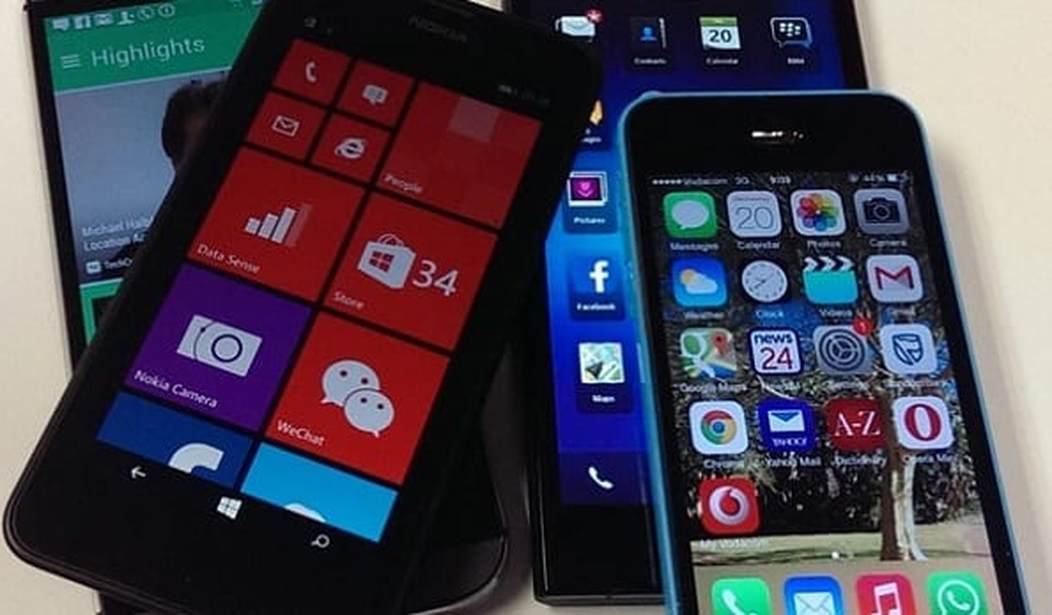 Last Thursday, FBI Director James B. Comey had a bit of a hissy fit over the news that Apple and Google are outfitting their phone operating systems with encryption that will be virtually impossible to break:
Last Thursday, FBI Director James B. Comey had a bit of a hissy fit over the news that Apple and Google are outfitting their phone operating systems with encryption that will be virtually impossible to break:
FBI Director James B. Comey sharply criticized Apple and Google on Thursday for developing forms of smartphone encryption so secure that law enforcement officials cannot easily gain access to information stored on the devices — even when they have valid search warrants.
His comments were the most forceful yet from a top government official but echo a chorus of denunciation from law enforcement officials nationwide. Police have said that the ability to search photos, messages and Web histories on smartphones is essential to solving a range of serious crimes, including murder, child pornography and attempted terrorist attacks.
“There will come a day when it will matter a great deal to the lives of people . . . that we will be able to gain access” to such devices, Comey told reporters in a briefing. “I want to have that conversation [with companies responsible] before that day comes.”
I find this argument to be essentially fascist in its nature and reflects the growing opinion in government, but particularly in law enforcement, that they have the right to intrude into any area of your life, force you to cooperate in your own prosecution, and kill you with impunity if the mood hits them.
While there is no doubt that this will make some prosecutions more difficult it is hard to see why that should be a concern of the population who are more concerned about their mobile device being compromised via loss or theft. Just last term, the Supreme Court banned the practice that was becoming standard in police forces of search smartphones anytime a person was detained, even in the case of traffic offenses.
In attacking this product offering, law enforcement officials are throwing up all manner of smoke screens, for instance:
The level of privacy described by Apple and Google is “wonderful until it’s your kid who is kidnapped and being abused, and because of the technology, we can’t get to them,” said Ronald Hosko, who left the FBI earlier this year as the head of its criminal-investigations division. “Who’s going to get lost because of this, and we’re not going to crack the case?”
This is an egregious lie on so many levels but it is emblematic of the mindset that says “on the off chance that someone somewhere may at some point in the future commit a heinous act, I have to have the ability to fish through your smartphone for evidence of some crime that you may have committed, or contemplated committing, at some point in the past so I can prosecute you. And you should be damned glad that I can do that.”
As the Washington Post helpfully points out:
Not all of the high-tech tools favored by police are in peril. They can still seek records of calls or texts from cellular carriers, eavesdrop on conversations and, based on the cell towers used, determine the general locations of suspects. Police can seek data backed up on remote cloud services, which increasingly keep copies of the data collected by smartphones. And the most sophisticated law enforcement agencies can deliver malicious software to phones capable of making them spy on users.
The most important information needed under any “ticking time bomb” scenario is remains available. What this encryption does is exactly one thing. It takes away the ability of law enforcement to easily make prosecutions of crimes they had no idea had been committed by people who were not suspected of committing a crime. Police can’t rummage through your email, access your bank accounts, see what you have purchased, and look at your photos because they have arrested you for something. In short, it makes them actually work.
In the past, law enforcement had turned Apple and Google staff into virtual extensions of law enforcement. Court orders compelled both companies, at their own expense, to devote staff and resources to meeting investigative requests. Now these private entities can no longer be hijacked by law enforcement agencies and made into adjuncts agencies.
In the case of really important investigations, again as the Post points out, there are ample tools exist for real law enforcement to access most, if not all, the data on a smartphone once they have received a court’s permission. It is time consuming. It is expensive. And is should be.
One only need look at the information divulged by Edward Snowden and the actions of law enforcement agencies to see that limiting fishing expeditions and severely constraining their ability to easily…. and this is the operative word…. start investigations is a manifestly good thing.
Many years ago a smart guy named Benjamin Franklin said “Those who would give up essential Liberty, to purchase a little temporary Safety, deserve neither Liberty nor Safety.” The courageous decision by Apple and Google to push back against the fearmongering of the FBI and other organizations that have no interest in preserving our liberty should be applauded.













Join the conversation as a VIP Member